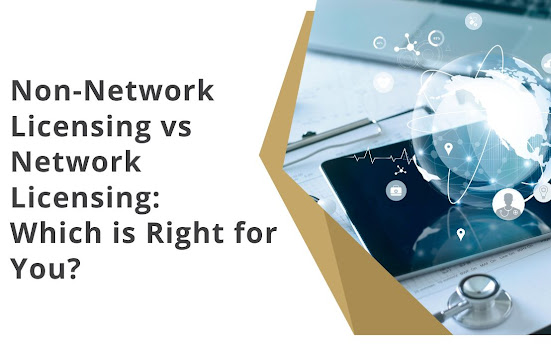Non-Network Licensing vs Network Licensing: Which is Right for You?
When it comes to licensing software, there are two main options to choose from: non-network licensing and network licensing. Each option has its own set of advantages and disadvantages, and which one is right for you will depend on your specific needs. In this article, we will discuss the differences between non-network and network licensing to help you make an informed decision.
Non-Network Licensing
Non-network licensing, also known as standalone licensing, is a type of licensing where a single license is purchased for each computer or device that will be using the software. With non-network licensing, the software can only be installed and used on the specific computer or device that the license was purchased for. This type of licensing is ideal for individuals or small businesses that only need to install the software on a few computers or devices.
Advantages of Non-Network Licensing:
No need for a network connection: Since non-network licensing only requires a license to be purchased for each computer or device, there is no need for a network connection to use the software.
Lower upfront cost: Non-network licensing can be more cost-effective for small businesses or individuals who only need to purchase a few licenses.
Disadvantages of Non-Network Licensing:
Limited mobility: Since non-network licensed software can only be installed on a specific computer or device, it can be difficult to move the software to a different computer or device if needed.
Time-consuming updates: If updates are needed for the software, each computer or device will need to be updated individually, which can be time-consuming and tedious.
Network Licensing
Network licensing, also known as concurrent licensing, is a type of licensing where a set number of licenses are purchased for a network of computers or devices. The software can be installed on any computer or device connected to the network, and the number of users who can access the software at the same time is limited by the number of licenses purchased.
Advantages of Network Licensing:
Easy updates: With network licensing, updates can be applied to all computers or devices on the network simultaneously, saving time and ensuring that everyone is using the same version of the software.
More flexible: Since network licensed software can be installed on any computer or device connected to the network, it is more flexible and can be used on multiple devices.
Disadvantages of Network Licensing:
Higher upfront cost: Network licensing can be more expensive upfront since multiple licenses need to be purchased.
Dependence on network connection: Network licensed software requires a network connection to use, which can be an issue if the network goes down or if users need to access the software while not connected to the network.
Conclusion
When it comes to choosing between non-network licensing and network licensing, it ultimately comes down to your specific needs and preferences. If you only need to install the software on a few computers or devices, non-network licensing may be the best option for you. However, if you have multiple users who need to access the software from various devices, network licensing may be a better choice. Consider the advantages and disadvantages of each option before making a decision.
ALSO READ: THE ULTIMATE GUIDE TO TELECOM LICENSES: UNDERSTANDING THE IMPORTANCE, TYPES, AND REGULATIONS



Comments
Post a Comment